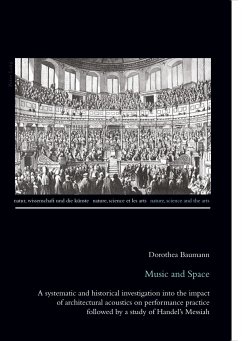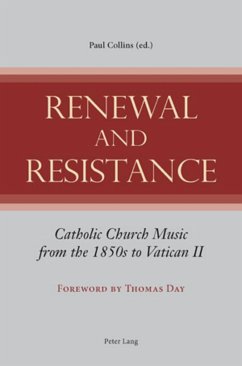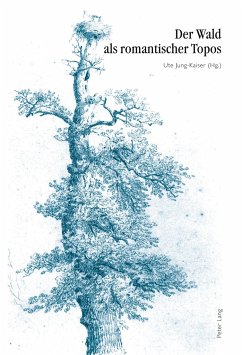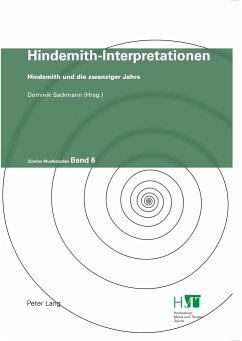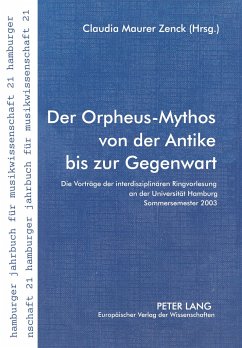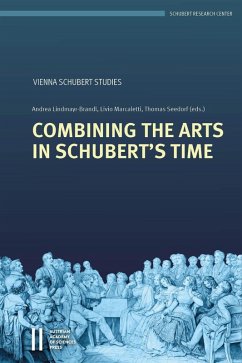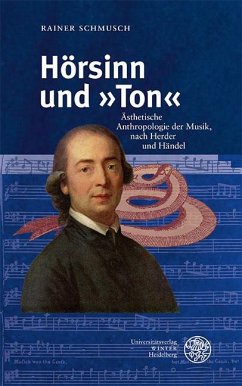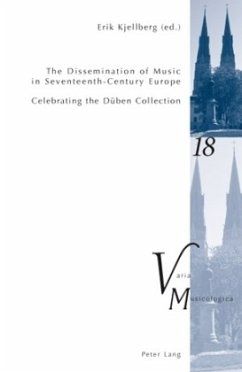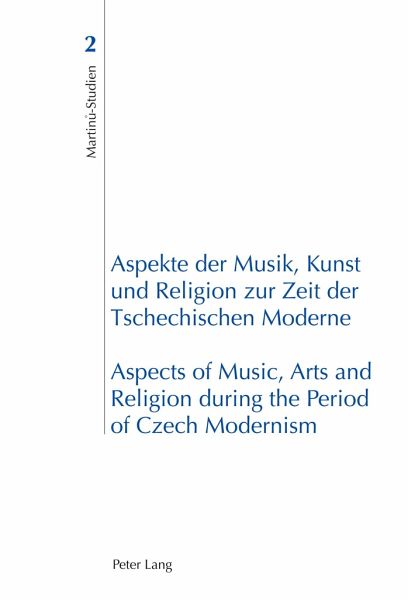
Aspekte der Musik, Kunst und Religion zur Zeit der Tschechischen Moderne- Aspects of Music, Arts and Religion during the Period of Czech Modernism
Versandkostenfrei!
Versandfertig in 6-10 Tagen
106,85 €
inkl. MwSt.

PAYBACK Punkte
0 °P sammeln!
Am Ende des 19. Jahrhunderts setzt sich die tschechische Gesellschaft intensiv mit neuen spirituellen Strömungen wie Theosophie, Anthroposophie und Okkultismus auseinander. Durch die Übersetzungen der Werke von Huysmans, Strauss, Nietzsche, Steiner und anderen ein ußreichen europäischen Denkern gerät der Katholizismus immer stärker in den Kon ikt mit der Moderne. Die Bewegung Katolická moderna versucht in Böhmen den Katholizismus zu erneuern. Zu den Mitarbeitern der Zeitschrift Nový zivot zählen wichtige tschechische Künstlerpersönlichkeiten. Auch die Autoren der Zeitschrift Modern...
Am Ende des 19. Jahrhunderts setzt sich die tschechische Gesellschaft intensiv mit neuen spirituellen Strömungen wie Theosophie, Anthroposophie und Okkultismus auseinander. Durch die Übersetzungen der Werke von Huysmans, Strauss, Nietzsche, Steiner und anderen ein ußreichen europäischen Denkern gerät der Katholizismus immer stärker in den Kon ikt mit der Moderne. Die Bewegung Katolická moderna versucht in Böhmen den Katholizismus zu erneuern. Zu den Mitarbeitern der Zeitschrift Nový zivot zählen wichtige tschechische Künstlerpersönlichkeiten. Auch die Autoren der Zeitschrift Moderní revue streben eine entsprechende Reform religiös ausgerichteter Kunst an.
Die tschechische Musik dieser Zeit widerspiegelt die vielfältige Auseinandersetzung mit den neuen Denkrichtungen. Charakteristisch für die betreffenden Werke ist der Synkretismus in Form einer persönlichen Synthese aus verschiedenen Formen der Spiritualität. In diesem Kongressband werden neben den Beiträgen zu diesen Fragen bislang unbekannte Dokumente zur tschechischen Musik der Jahrhundertwende veröffentlicht und die Rezeptionswege von massgebenden Komponisten der Zeit (Dvorák, Janácek, Hába, Schulhoff, Novák, Martinu) untersucht.
At the end of the 19th century, Czech society was preoccupied with new spiritual trends such as theosophy, anthroposophy, pantheism and occultism. The ideas of Schuré, Huysmans, Péladan, Renan, Strauss, Nietzsche, Steiner, Blavatsky and other in uential European thinkers were compiled and made available thanks to numerous translations. At the same time, Catholicism was coming into increasing con ict with modernism. One of the attempts at its revival in Bohemia was represented by the movement Catholic Modernism. The contributors to the review Nový zivot (New Life) were distinct personalities of Czech cultural life. The authors of the magazine Moderní revue (Modern Review) strove for reform of religion-oriented arts too.
Czech music of that period re ects the multifaceted encounters with the new intellectual trends. Works are characterised by syncretism, in the form of a personal synthesis of various types of spirituality. In addition, the congress proceedings comprise research into hitherto unknown documents dealing with Czech music at the turn of the 19th and 20th centuries, as well as the paths of reception of the foremost composers of the time (Dvorák, Janácek, Hába, Schulhoff, Novák, Martinu).
Die tschechische Musik dieser Zeit widerspiegelt die vielfältige Auseinandersetzung mit den neuen Denkrichtungen. Charakteristisch für die betreffenden Werke ist der Synkretismus in Form einer persönlichen Synthese aus verschiedenen Formen der Spiritualität. In diesem Kongressband werden neben den Beiträgen zu diesen Fragen bislang unbekannte Dokumente zur tschechischen Musik der Jahrhundertwende veröffentlicht und die Rezeptionswege von massgebenden Komponisten der Zeit (Dvorák, Janácek, Hába, Schulhoff, Novák, Martinu) untersucht.
At the end of the 19th century, Czech society was preoccupied with new spiritual trends such as theosophy, anthroposophy, pantheism and occultism. The ideas of Schuré, Huysmans, Péladan, Renan, Strauss, Nietzsche, Steiner, Blavatsky and other in uential European thinkers were compiled and made available thanks to numerous translations. At the same time, Catholicism was coming into increasing con ict with modernism. One of the attempts at its revival in Bohemia was represented by the movement Catholic Modernism. The contributors to the review Nový zivot (New Life) were distinct personalities of Czech cultural life. The authors of the magazine Moderní revue (Modern Review) strove for reform of religion-oriented arts too.
Czech music of that period re ects the multifaceted encounters with the new intellectual trends. Works are characterised by syncretism, in the form of a personal synthesis of various types of spirituality. In addition, the congress proceedings comprise research into hitherto unknown documents dealing with Czech music at the turn of the 19th and 20th centuries, as well as the paths of reception of the foremost composers of the time (Dvorák, Janácek, Hába, Schulhoff, Novák, Martinu).





